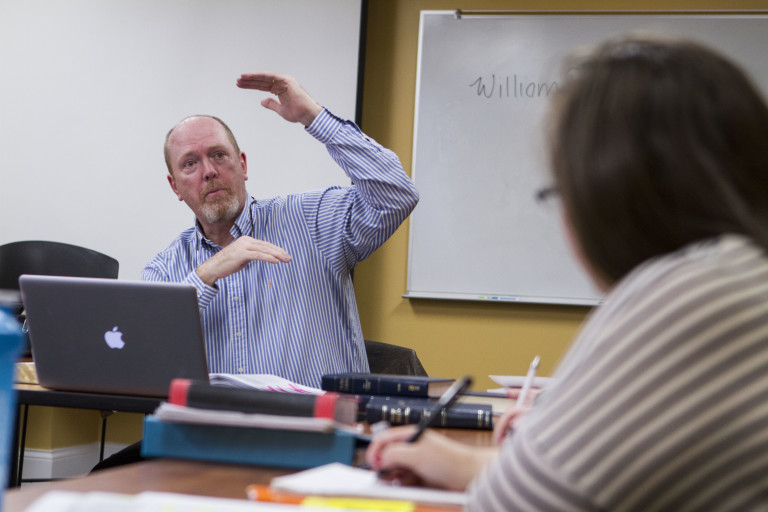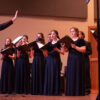By Victoria McClary, Staff Writer
This semester, the Christian Studies and Philosophy Department is offering a new seminar class entitled Disabilities and Ministry. This seminar course is giving students the opportunity to learn about various disabilities and teaches them how to minister to those with disabilities within the church.
Dr. Clair Budd, who serves as department head of the Christian Studies and Philosophy Department at Asbury, a Christian Ministries professor and the coordinator of the class, said this class was offered after members of the administration, specifically Dr. Gray, asked for a class focusing on disabilities to be offered in the department. According to Budd, Dr. Gray met Joni Eareckson Tada, a paraplegic, who operates a well-respected organization which ministers to people with special needs and their families. This organization, Joni and Friends, helps to provide churches with resources for ministering to those with disabilities. Dr. Gray learned about a course Tada’s organization had created called “Beyond Suffering,” which is used at other Christian universities in order to teach students how to effectively minister to those with disabilities.
“(My) visit to Joni and Friends ministry about a year ago gave me a deeper awareness of the need for ministry to individuals and families impacted by persons with special needs,” said Dr. Gray. “I encourage all students to consider this course to better equip you as you reach out in love and service to persons with disabilities.”
This course was available to all students during enrollment; but the majority of the students in the class are Christian Ministries or Youth Ministries majors with a few Psychology and Missions majors as well.
There are various reasons why students are taking this class. Junior Jennifer Creech, a Youth Ministries major, said she took the class out of curiosity but also after witnessing disabilities being handled poorly in the church.
“I have seen how churches I have attended have responded to those with disabilities . . . some within the church . . . simply ignore those with disabilities,” she said. “As the body of Christ, we should look beyond the disability … and realize that a disability does not define a person…They should be loved deeply and have much to contribute to the Church.”
“We hope to raise awareness of various special needs and disabilities so that the church can be better equipped to serve these populations,” said Budd. “In general, churches get very poor marks in welcoming and ministering to special needs people.”
Another thing that makes this course unique is that it is taught with a team approach, which Budd facilitates. Dr. Thane Ury, a Scholar in Residence at Asbury, teaches the theological importance of ministering to those with disabilities. Social Work professor, Dr. Lisa Clifton teaches students the historical perspective on disabilities, the global reach of disability, and networking with disability ministries and organizations. Dr. Claire Peterson, Philosophy professor, teaches the bioethics involved with ministering to those with disabilities. There will also be guest lecturers who work with those with disabilities within the local church who will be visiting the class in order to instruct students.
Currently, students are also wrestling with tough theological questions like “Why do bad things happen to good people?” and “If God is so loving and powerful, then why does he cause or allow suffering?”
Junior Lexi Finley said that this discussion has been powerful for her personally. Finley, who has been legally blind since her early teens, says “I have struggled with both of these questions in regards to my own disability. It is vital to our Christian faith that we understand as best as humanly possible that God does NOT cause evil or suffering to happen to us, but rather, God allows suffering to enter into our lives so that his glory and work in us can be displayed for all to see.”
Creech added, “[Taking the class] has provided me with insight as well as caused me to wrestle with some of my own preconceived notions concerning disabilities, suffering and how the Church can better minister to those they may feel uncomfortable around.”
Overall, students have been enthusiastic about learning how to better accommodate those with disabilities in their future vocations. Finley, a Youth Ministries major stated “I want to be able to build lasting relationships with my students who are disabled, and I want to point them towards Christ and his love from which their TRUE identity is found in.”
Dr. Budd hopes to offer the class again, but nothing is set in stone.
“The ‘Disabilities and Ministry’ seminar is one we expect to offer again and perhaps eventually include in our regular curriculum,” he said.




